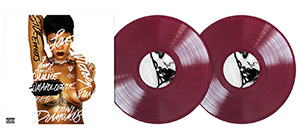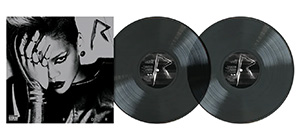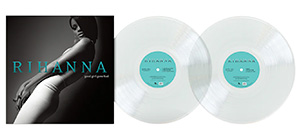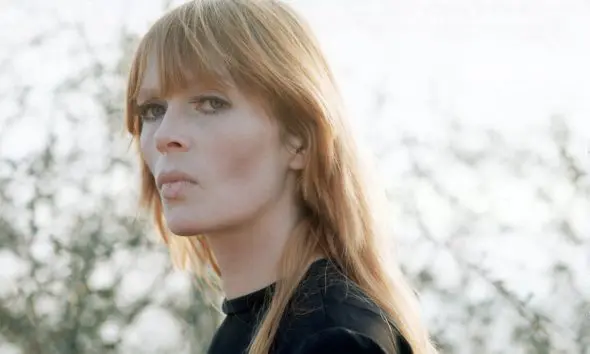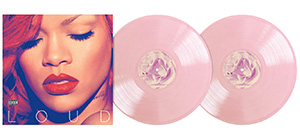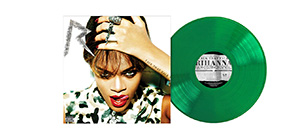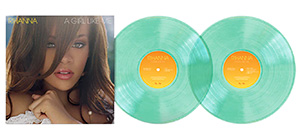We Shall Overcome: The Power Of Protest Songs
People have been using music as a means to express dissatisfaction for as long as we know, but why is it so powerful?
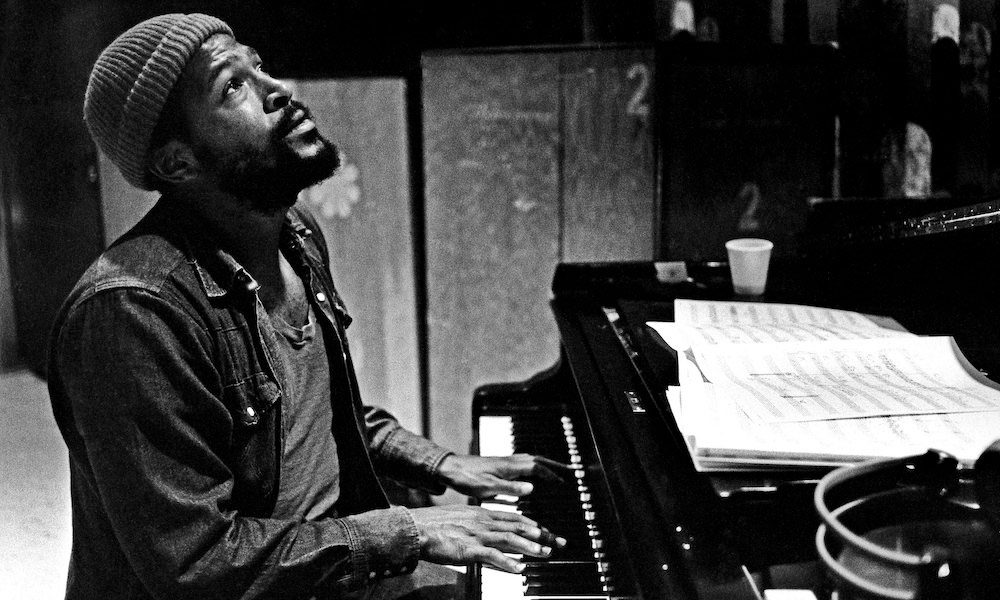
“I thought that if you had an acoustic guitar, it meant that you were a protest singer,” sang Morrissey on The Smiths’ song “Shakespeare’s Sister.” Back in 1985, that might not have been an unusual point of view. The idea of protest singers as finger-picking folkies had been long cemented in popular culture, going back to the 60s, when Bob Dylan brought songs such as “The Times They Are A-Changin’’ to the masses, spawning countless copyists voicing virtues through their protest songs.
But this was nothing new. People have been using music as a means to express dissatisfaction with their lot for as long as we know. Since medieval times in England, we have records of songs of protest. As sheet music became popular following the advent of the printing press, broadsides (single-page proto-newspapers) often featured ballads, which sang of familiar subjects such as love and loss, but also addressed matters that concerned the people of the day. The British Civil Wars gave rise to songs criticizing Oliver Cromwell, for example. These so-called “broadside ballads” gave way to songs promoting socialism, or lecturing about temperance, slavery, and other such moral matters.
The power of collective singing
The best of these remain alive today as national anthems or traditional folk songs. The communal singing of songs was also used by slaves in the United States. While dancing was forbidden, the singing of songs was allowed – as long as they weren’t critical of their masters, of course. The slaves used songs such as “Swing Low, Sweet Chariot’’ and “Steal Away’’ as hidden messages of escape through the underground railroad. While perhaps not protest songs as we might think of them, this collective singing had a power that would become familiar around the world as songs the likes of “We Shall Overcome’’ and John Lennon’s “Give Peace A Chance’’ were chanted by thousands at protest marches.
But the emerging recording industry at the dawn of the 20th Century sought primarily to entertain, and, as such, these worthy subjects grew apart from what was gradually becoming known as popular music. Indeed, it wasn’t until horrific events in 30s North America inspired the son of Russian-Jewish immigrants in New York that the protest song as we think of it today was born.
“Strange Fruit’’: elevating protest songs to the level of art
Lynching of African-Americans had become so common in parts of the States since the turn of the century that, as Bob Dylan expounded in his powerful 1965 epic, “Desolation Row,’’ “They’re selling postcards of the hangings,” referencing the distribution of photographs of three hanged black men in his hometown in 1920. When the New York songwriter and poet Abel Meeropol saw a similar photograph, this time of the bodies of Thomas Shipp and Abram Smith hanging from a tree in Marion, Indiana, in 1930, it inspired him to write a work that Time magazine would call the Best Song Of The Century.
“Strange Fruit’’ was most notably sung by Billie Holiday in 1939. So powerful was its message that her record label, Columbia, refused to record it. They did, however, allow her to record it for another label, Commodore; it would go on to sell over a million copies.
The song arrests the listener from the off: “Southern trees bear strange fruit/Blood on the leaves and blood at the root/Black bodies swinging in the southern breeze/Strange fruit hanging from the poplar trees.” When Holiday first began performing in the clubs of New York, it was always the last song of the set (nothing could follow it); the room would be plunged into darkness, save for a single spotlight on her face, and the waiters would halt service for the duration of the performance.
The force of the delivery and the message never left its audience, and the song would continue to live on long after the deaths of Holiday and Meeropol. The great Atlantic Records producer Ahmet Ertegun described it as “a declaration of war… the beginning of the Civil Rights movement”.
Nina Simone breathed fresh anger into it when she recorded it in 1965 at the height of the Civil Rights movement. And when the British singer Rebecca Ferguson was invited to sing at the inauguration of President Donald Trump, she replied, “If you allow me to sing ‘Strange Fruit’, a song that has huge historical importance, a song that was blacklisted in the United States for being too controversial. A song that speaks to all the disregarded and downtrodden black people in the United States. A song that is a reminder of how love is the only thing that will conquer all the hatred in this world, then I will graciously accept your invitation and see you in Washington.”
With “Strange Fruit,’’ the protest song became more than just reportage, elevating the idea of protest songs to the level of art. Not all proto-protest songs and singers would invoke such power, and yet the directness of the message became something of a blueprint.
“This Land Is Your Land’’: a response to wartime jingoism
Born in Oklahoma in 1912, Woody Guthrie was named after Democrat (and future President) Woodrow Wilson. Woody’s father, Charley, was himself supposedly involved in a lynching, that of Laura Nelson and her son LD the year before Woody’s birth, and he encouraged his son to follow his anti-socialist leanings. But like many “Okies”, during the Great Depression, Woody headed to California, where the promise of sunshine, prosperity and a good life would turn out to be too good to be true for most. He witnessed the Dust Bowl disaster that caused many to lose their farms, their homes, their livelihood, and he began to write songs about the hardships they faced. These songs were collected on his first (and most successful) album, Dust Bowl Ballads, which was released in 1940. The album included ‘Tom Joad’, a song based on John Steinbeck’s dust bowl novel The Grapes Of Wrath. Steinbeck reportedly commented, “In 17 verses he got the entire story of a thing that took me two years to write!”
A song Guthrie wrote in 1940 remained unrecorded for four years, before becoming his most famous – and most enduring – song. “This Land Is Your Land’’ was written in critical response to what he perceived as wartime jingoism, with songs such as Irving Berlin’s “God Bless America’’ ubiquitous. “I am out to sing songs that will prove to you that this is your world,” he wrote. “I could hire out to the other side, the big money side, and get several dollars every week just to quit singing my own songs and to sing the kind that knock you down farther and the ones that poke fun at you even more and the ones that make you think you’ve not got any sense at all. But I decided a long time ago that I’d starve to death before I’d sing any such songs as that.”
Whether Guthrie was a political writer or, as the country singer-songwriter Steve Earle noted, “a writer who lived in very political times”, is a matter of interpretation. But what is undeniable is the huge influence these songs would have on future generations of songwriters, from Pete Seeger and Billy Bragg to Bob Dylan and Bruce Springsteen, all of whom would sing “This Land Is Your Land,’’ making it their own, just as Guthrie would have wanted.
“Protest music boiled down to its quintessence”
Singing songs that supported a sensitive way of life had gotten many Americans into hot water during the paranoid McCarthy era of the Cold War. Union songs were seen as Communist anthems, and their singers were seen by Senator Joseph McCarthy and his supporters as subversives, to be rounded up and dealt with. Guthrie’s friend Pete Seeger, a member of the Communist Party, saw first-hand what they were up against when he tried to hold a concert in upstate New York in 1949. Veterans and Ku Klux Klansmen came out to not only put a stop to what they saw as a Communist rally, but to take direct action against one of its black performers, Paul Robeson.
As Dorian Lynskey explains in his history of protest songs, 33 Revolutions Per Minute, “Before Seeger could even get to the site the veterans had mobbed concert-goers, screaming, ‘Give us Robeson. We’ll lynch the ni__er up!’ The crowd responded by linking arms in a chorus of the popular adapted spiritual “We Shall Not Be Moved.’’ But moved they were – by ferocious veterans who marked their victory by erecting a burning cross.” The press reported the incident under the headline “Robeson: He Asked For It”. When the concert was rescheduled the following week, concert-goers were this time ambushed as they left, with state troopers joining the “concerned citizens” in attacking the crowd.
Seeger had by now adapted Charles A Tindley’s ever-evolving “I’ll Overcome Someday’’ into what Lynskey describes as “protest music boiled down to its quintessence: we – the power of community; shall – the promise of a brighter future; overcome – defiance and endurance”. ‘We Shall Overcome’ became the first great protest anthem to suit all occasions.
Seeger left the Communist Party as the reality of Stalin’s brutal regime became clear, but by now the left in the United States had a new cause to unite behind: Civil Rights. After Rosa Parks had refused to give up her seat on a bus to a white passenger in Montgomery, Alabama, the Civil Rights movement began to gather pace, and songs would play a huge role both in bringing the message to a global audience, and in uniting the various protesters under one banner, just as the slaves of a few generations ago had sung together. Indeed, those who backed Rosa Parks in the Montgomery Bus Boycott revived such spirituals as ‘Steal Away’ as part of their protest.
Say it loud
Throughout the 60s, both black and white artists would write and perform songs decrying racial prejudice and inequality. Nina Simone’s ferocious “Mississippi Goddam’’ was a violent response to the bombing of a children’s bible group at a Baptist church in Birmingham, Alabama, in which four teenagers were killed. Sam Cooke’s powerful “A Change Is Gonna Come’’ became the anthem of the Civil Rights movement. He wrote the song after hearing Bob Dylan’s “Blowin’ In The Wind,’’ feeling almost ashamed that a white man had written it and not him. The song would be covered by the likes of Aretha Franklin and Otis Redding, but it would be another four decades before perhaps its most powerful reading, when the newly elected president Barack Obama told his supporters in Chicago: “It’s been a long time coming, but tonight, change has come to America.”
Motown records was known as the sound of young America, loved for its upbeat, dancing music, with finely crafted pop songs about boys and girls, and yet such was the strength of the civil rights movement that its artists, too, began bringing protest into pop, with the likes of The Temptations’ ‘Message From A Black Man’ and Marvin Gaye’s 1971 masterpiece, What’s Going On?. James Brown sang “Say It Loud – I’m Black And I’m Proud,’’ while Curtis Mayfield urged “People Get Ready.’’
The other focus of songwriters’ ire at this time was the escalating war in Vietnam. Bob Dylan’s scathing “Masters Of War’’ showed just how much the young man from Duluth, Minnesota, had learned from his hero Woody Guthrie. Many of Dylan’s message songs were covered by other artists – such as Manfred Mann’s take on “With God On Our Side’’ and Nina Simone’s forceful reading of “Ballad Of Hollis Brown.’’
Like Guthrie, it remains a matter of debate even today as to whether Dylan was a writer of protest songs or message songs, or whether he was simply writing about the changing times in which he lived. But one thing that’s beyond question is that the floodgates were opened by the success of his songs of injustice. Barry McGuire scored a US No.1 hit in 1965 with “Eve Of Destruction,’’ which seemed to protest in much the same way that Marlon Brando rebelled in The Wild One (“What are you protesting against?” “Whadda you got?”), while mass gatherings such as those at Monterey and Woodstock were littered with protest songs. One of the most iconic moments at Woodstock was Country Joe &The Fish’s performance of ‘I-Feel-Like-I’m-Fixin’-To-Die Rag’, with its singalong chorus:
And it’s one, two, three,
What are we fighting for?
Don’t ask me, I don’t give a damn,
Next stop is Vietnam;
And it’s five, six, seven,
Open up the pearly gates,
Well there ain’t no time to wonder why,
Whoopee! we’re all gonna die.
The power of the pop song
While the very big and obvious Civil Rights and anti-war movements pioneered the use of protest songs, their use wasn’t entirely limited to those campaigns. By now, politicians were well aware of the power of the pop song. In 1960, during one of the tightest presidential elections in history, John F Kennedy was grateful to have the support of Frank Sinatra, who was able to rally many of his connections in support of the young Democrat, standing against Richard Nixon. The singer re-recorded a version of his Oscar-winning hit “High Hopes,’’ changing the lyrics to express his support of Kennedy: “Everyone wants to back Jack/Jack is on the right track/’Cause he’s got high hopes.” (Not all presidents would successfully ally themselves with the right songs, however, as Ronald Reagan discovered when he cited Bruce Springsteen’s “Born In The USA’’ as a message of hope; meanwhile, The Rolling Stones flatly refused to allow Donald Trump to use their “Start Me Up’’ at his campaign events.)
Not all pop stars were as outspoken in their political position. Indeed, it was generally considered inappropriate for musicians to express opinions on political matters. “For years, on the Beatle tours, [Brian] Epstein had stopped us from saying anything about Vietnam or the war,” recalled John Lennon about their manager in a 1980 interview with Playboy magazine. “But on one tour, I said, ‘I am going to answer about the war. We can’t ignore it.’ I absolutely wanted The Beatles to say something.”
And what The Beatles were saying was that they didn’t agree with the war. As the decade wore on, their songs began more overtly to reflect their views, with first “All You Need Is Love’’ acting as a slogan for the younger generation, and then their 1968 single “Revolution’’ spoke directly of their position on current events. A year later, Lennon released the Plastic Ono Band single “Give Peace A Chance,’’ a blatant protest song which Lennon had written to be sung at marches against the Vietnam War: “In my secret heart I wanted to write something that would take over “We Shall Overcome,’’ he recalled. “I don’t know why. [That was] the one they always sang, and I thought, ‘Why doesn’t somebody write something for the people now, that’s what my job and our job is.’”
As the 70s progressed, the hopes of the 60s turned once more to anger, and this was reflected in songs like Gil Scott-Heron’s “The Revolution Will Not Be Televised’’ (on which he sang, “You will not be able to plug in, turn on and drop out”), “War’’ by The Temptations and, later, Edwin Starr, while Bob Marley’s “Exodus’’ reflected the changing face of politics in Jamaica. This latter had a huge impact in the UK, where the children of the Windrush generation of immigrants from the West Indies were coming of age.
Reggae and punk were an outlet for the dissatisfied young people of the UK as the 70s and 80s saw rioting in many British inner cities brought on by oppression, prejudice and open racism. Joe Strummer of The Clash had grown up on the songs of Woody Guthrie (even adopting Woody as a nickname for a while), and his band’s fusion of politics, reggae and punk was as infectious as it was forceful.
Another British Guthrie disciple, Billy Bragg, began bringing the divisive politics of Thatcher-era Britain to the charts. “To Have And To Have Not’’ addressed the hopelessness felt by the millions of unemployed in much the same way that Guthrie’s songs had spoken of the plight of the Okies in the Dust Bowl. Bragg has also followed in his hero’s footsteps by scrawling the slogan “This machine kills fascists” on his guitars. Bragg fronted the Red Wedge movement that looked to use musicians to engage young people with politics and support Labour in the 1987 UK general election, the movement featuring artists such as Paul Weller, Jimmy Sommerville, The Smiths, and Madness.
The 1984 single “Free Nelson Mandela,’’ by The Special AKA, was a Top 10 UK hit in support of the imprisoned South African, and became a rallying cry for the anti-Apartheid movement. Artists continued to align themselves with politics, singing their own songs of protest. U2’s “Pride (In the Name Of Love)’ recalled (albeit partially erroneously) the assassination of Martin Luther King, while their “Sunday Bloody Sunday’ reflected the horrors of The Troubles in Northern Ireland. R.E.M.’s influential Document album included a number of songs taking issue with the government of President Ronald Reagan, such as “Exhuming McCarthy.’’ Hip-hop artists also spoke of their dissatisfaction with society, with the revolutionary rhetoric of Public Enemy’s “Fight The Power’’ leading the line.
Another moment in history
Today, protest songs continue to flood out from singers and songwriters old and new. Neil Young’s recent “Child Of Destiny’’ urges us to “Stand up for what you believe/Resist the powers that be”. Lady Gaga turned to Guthrie when she performed at the 2017 Super Bowl, singing “This Land Is Your Land,’’ a year after Beyoncé had used the same platform to support the Black Lives Matter campaign and honor the Black Panthers.
At a time when politics has spilled out onto the streets once again, the power of the protest song looks set to be exploited afresh. Whether any artist will take up the baton of Seeger and Lennon and create a new anthem to be sung in the streets remains to be seen. That music is still being used, as it always has been, as a means to raise awareness and share a common goal looks set to continue.
“The point of protest music…” explains Lynskey in 33 Revolutions Per Minute, “is not to shift the world on its axis but to change opinions and perspectives, to say something about the times in which you live, and, sometimes, to find that what you’ve said speaks to another moment in history.” And only when this happens is Sam Cooke’s prophesy going to come true, and a change is gonna come.


